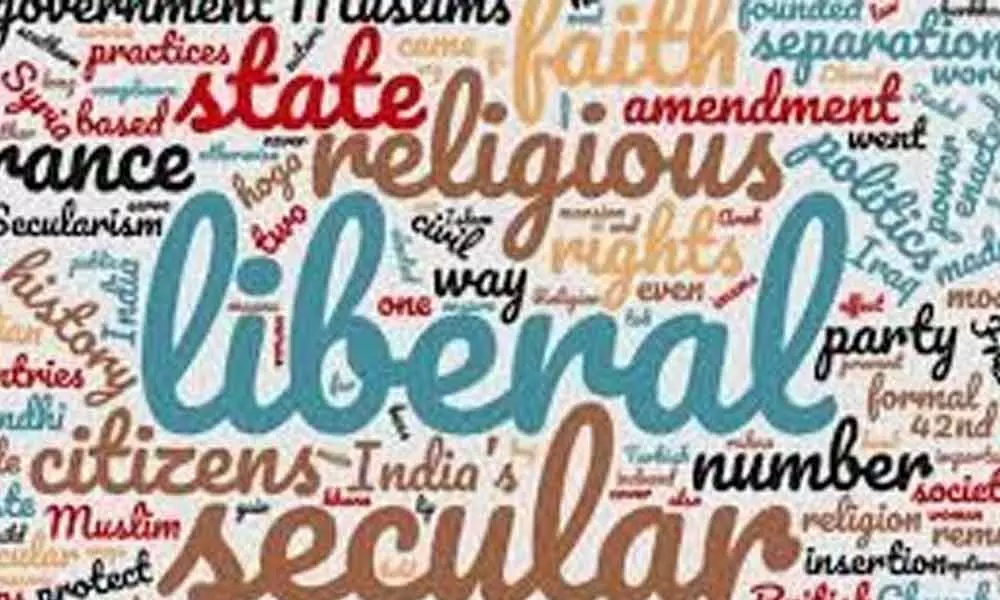Indian traditions heavily misunderstood by intellectuals

Ramu Sarma has written a bold piece in THI dated March 5 where he analysed the pathetic response of the opposition towards the Ukrainian student crisis.
Ramu Sarma has written a bold piece in THI dated March 5 where he analysed the pathetic response of the opposition towards the Ukrainian student crisis. It is now the unfortunate polarisation around the single point of Modi and the BJP that hatred for them translates into hatred for the country. This is a time, as the editorial rightly points out, that the opposition should get its act together and offer solutions instead of resorting to criticisms using the social media platforms.
On the same page, as a double-whammy, the main editorial highlighted the depressing degeneration of the country in the seventy-five years of independence where 'region, caste, and religion' have become the most important reasons for major discord. Where have our politicians, intellectuals, academia, and thinkers gone wrong? Why is everyone in the country unhappy for their social identity and go around with feelings of persecution and discrimination?
In the garb of rejecting the colonial narratives, the post-colonial academia, heavily infiltrated with a hegemonic Marxist ideology, completely misunderstood Indian traditions. In a deep symbiotic relationship with political leaders, they managed to distort every single framework of Indian society even more disastrous than the colonials themselves. An evil caste-ridden Hindu society forever having a communal problem with the Muslims became the backbone of all scholarly output on India. Band aid solutions like whitewashing documented histories became the methods of achieving secularism.
Are there solutions? Yes, there are, if we radically reject the old theories and give place to intellectuals like Balagangadhara Rao and many others who are struggling to give an alternative viewpoint of our country and culture which stood strong for thousands of years against all attacks. Similar civilisations have simply melted away in the face of such onslaughts. Caste and sub-caste grew in the western contexts; varna and jati grew in Indian contexts. Is there a possibility that there is an inappropriate application of a western framework to understand our social systems?
As Dr Balagangadhara strongly proposes, 'Hinduism' is a huge conglomeration of many traditions, rituals, local practices, and philosophies with a core characteristic of an indifference to differences. This transcends the concepts of both 'tolerances and acceptances.' Hinduism as a 'religion' became an experience of the West which saw religions wherever it went.
They saw the multitude of traditions in the great tree of Sanatana Dharma and constructed religions like Hinduism, Buddhism, Sikhism, and Jainism (sometimes even fighting each other). Do religions even exist as defined in the Abrahamic mode? The biggest problem of the world (colonial, post-colonial, modern, post-modern, and so on), cutting across all ideologies, is the continuous understanding of traditions as religions.
For reasons we cannot grasp now, Christianity and Islam took the character of traditions like other traditions in India; they lost the fixation on distinguishing between the true and the false and the resulting proselytising drive. This was the Indian solution to multiculturalism and pluralism. Instead of exploring our own solutions, we imported secularism for our 'communal' harmony, a solution for European Christendom at a specific point of its history.
An enlightened monarchy with decentralisation and individual autonomy was the key of Indian culture. A centralised parliamentary democracy was never our route. The regional parties today are no surprise looking at the character of India but what is uncharacteristic is that they seem to have forgotten a core civilisational essence which defined and united Bharatvarsha in the past. Yes, there are solutions; only it needs strong work in the next few decades.
Dr Pingali Gopal, Hanamkonda

